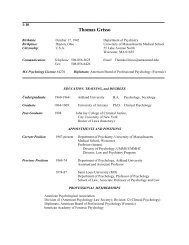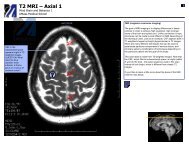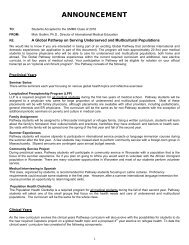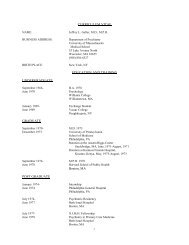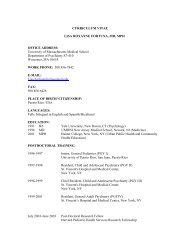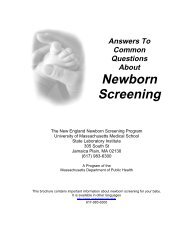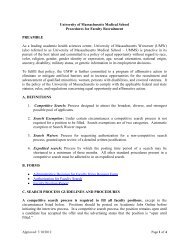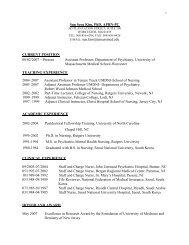Anger Management Manual - the ATTC Network
Anger Management Manual - the ATTC Network
Anger Management Manual - the ATTC Network
Create successful ePaper yourself
Turn your PDF publications into a flip-book with our unique Google optimized e-Paper software.
A Cognitive Behavioral Therapy <strong>Manual</strong><br />
The Problem of <strong>Anger</strong>: Some Operational Definitions<br />
In <strong>the</strong> most general sense, anger is a feeling or emotion that ranges from mild irritation to<br />
intense fury and rage. <strong>Anger</strong> is a natural response to those situations where we feel threatened,<br />
we believe harm will come to us, or we believe that ano<strong>the</strong>r person has unnecessarily<br />
wronged us. We may also become angry when we feel ano<strong>the</strong>r person, like a child or someone<br />
close to us, is being threatened or harmed. In addition, anger may result from frustration when<br />
our needs, desires, and goals are not being met. When we become angry, we may lose our<br />
patience and act impulsively, aggressively, or violently.<br />
People often confuse anger with aggression. Aggression is behavior that is intended to cause<br />
harm to ano<strong>the</strong>r person or damage property. This behavior can include verbal abuse, threats,<br />
or violent acts. <strong>Anger</strong>, on <strong>the</strong> o<strong>the</strong>r hand, is an emotion and does not necessarily lead to<br />
aggression. Therefore, a person can become angry without acting aggressively.<br />
A term related to anger and aggression is hostility. Hostility refers to a complex set of attitudes<br />
and judgments that motivate aggressive behaviors. Whereas anger is an emotion and<br />
aggression is a behavior, hostility is an attitude that involves disliking o<strong>the</strong>rs and evaluating<br />
<strong>the</strong>m negatively.<br />
In this group, clients will learn helpful strategies and techniques to manage anger, express<br />
anger in alternative ways, change hostile attitudes, and prevent aggressive acts, such as verbal<br />
abuse and violence.<br />
When Does <strong>Anger</strong> Become a Problem?<br />
<strong>Anger</strong> becomes a problem when it is felt too intensely, is felt too frequently, or is expressed<br />
inappropriately. Feeling anger too intensely or frequently places extreme physical strain on <strong>the</strong><br />
body. During prolonged and frequent episodes of anger, certain divisions of <strong>the</strong> nervous system<br />
become highly activated. Consequently, blood pressure and heart rate increase and stay<br />
elevated for long periods. This stress on <strong>the</strong> body may produce many different health problems,<br />
such as hypertension, heart disease, and diminished immune system efficiency. Thus, from a<br />
health standpoint, avoiding physical illness is a motivation for controlling anger.<br />
Ano<strong>the</strong>r compelling reason to control anger concerns <strong>the</strong> negative consequences that result<br />
from expressing anger inappropriately. In <strong>the</strong> extreme, anger may lead to violence or physical<br />
aggression, which can result in numerous negative consequences, such as being arrested or<br />
jailed, being physically injured, being retaliated against, losing loved ones, being terminated<br />
from a substance abuse treatment or social service program, or feeling guilt, shame, or regret.<br />
Even when anger does not lead to violence, <strong>the</strong> inappropriate expression of anger, such as verbal<br />
abuse or intimidating or threatening behavior, often results in negative consequences. For<br />
example, it is likely that o<strong>the</strong>rs will develop fear, resentment, and lack of trust toward those<br />
who subject <strong>the</strong>m to angry outbursts, which may cause alienation from individuals, such as<br />
family members, friends, and coworkers.<br />
9




